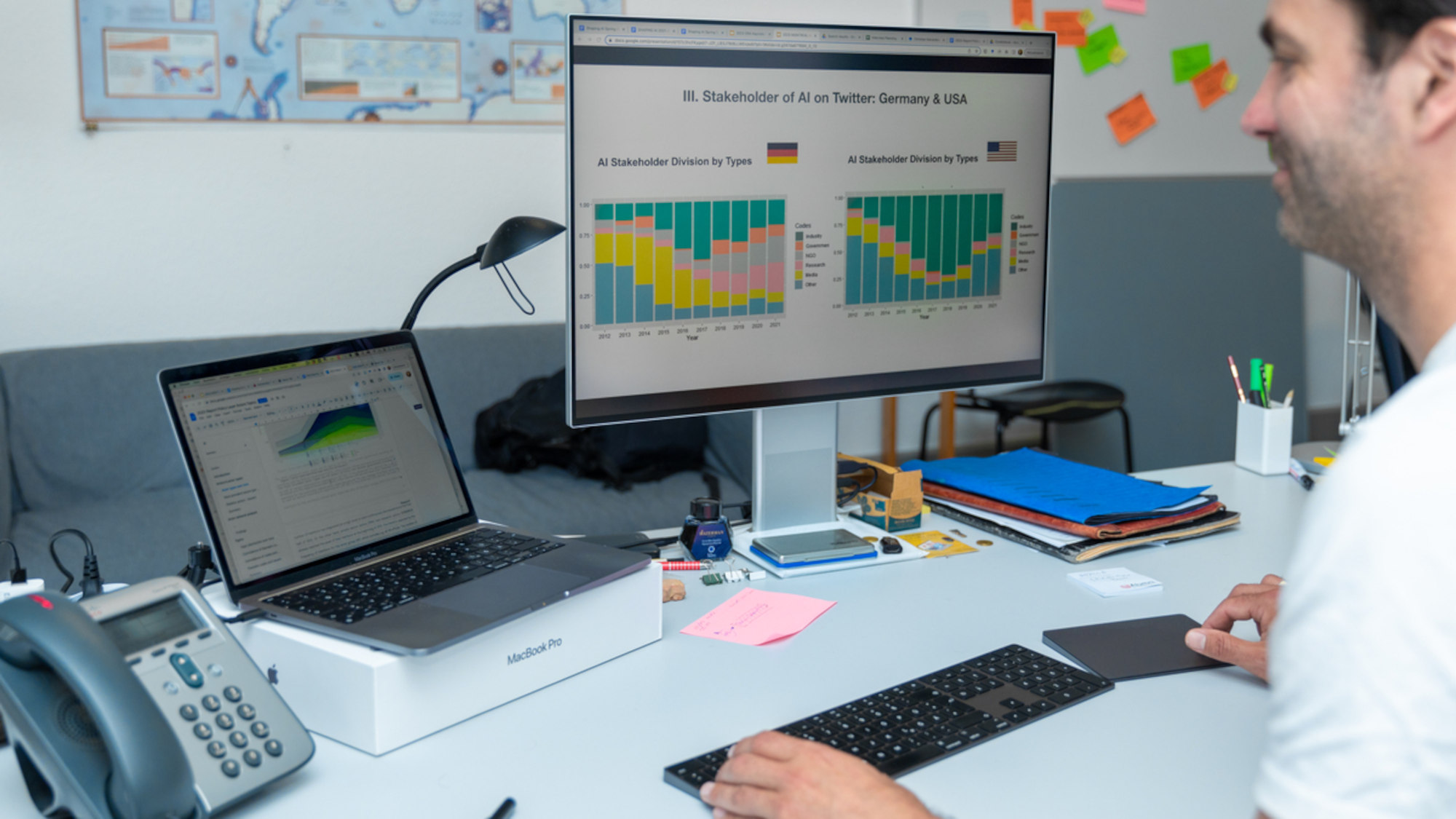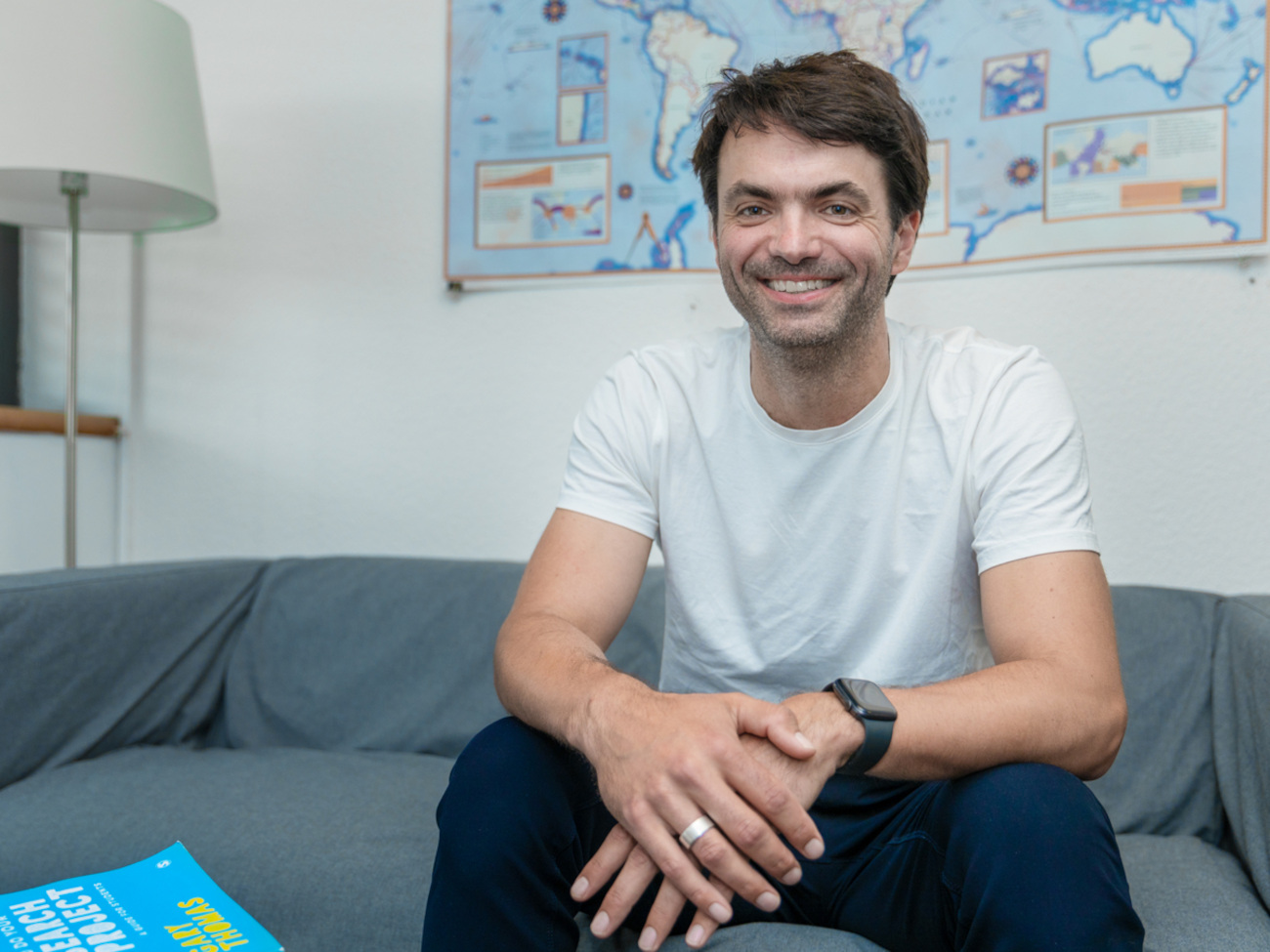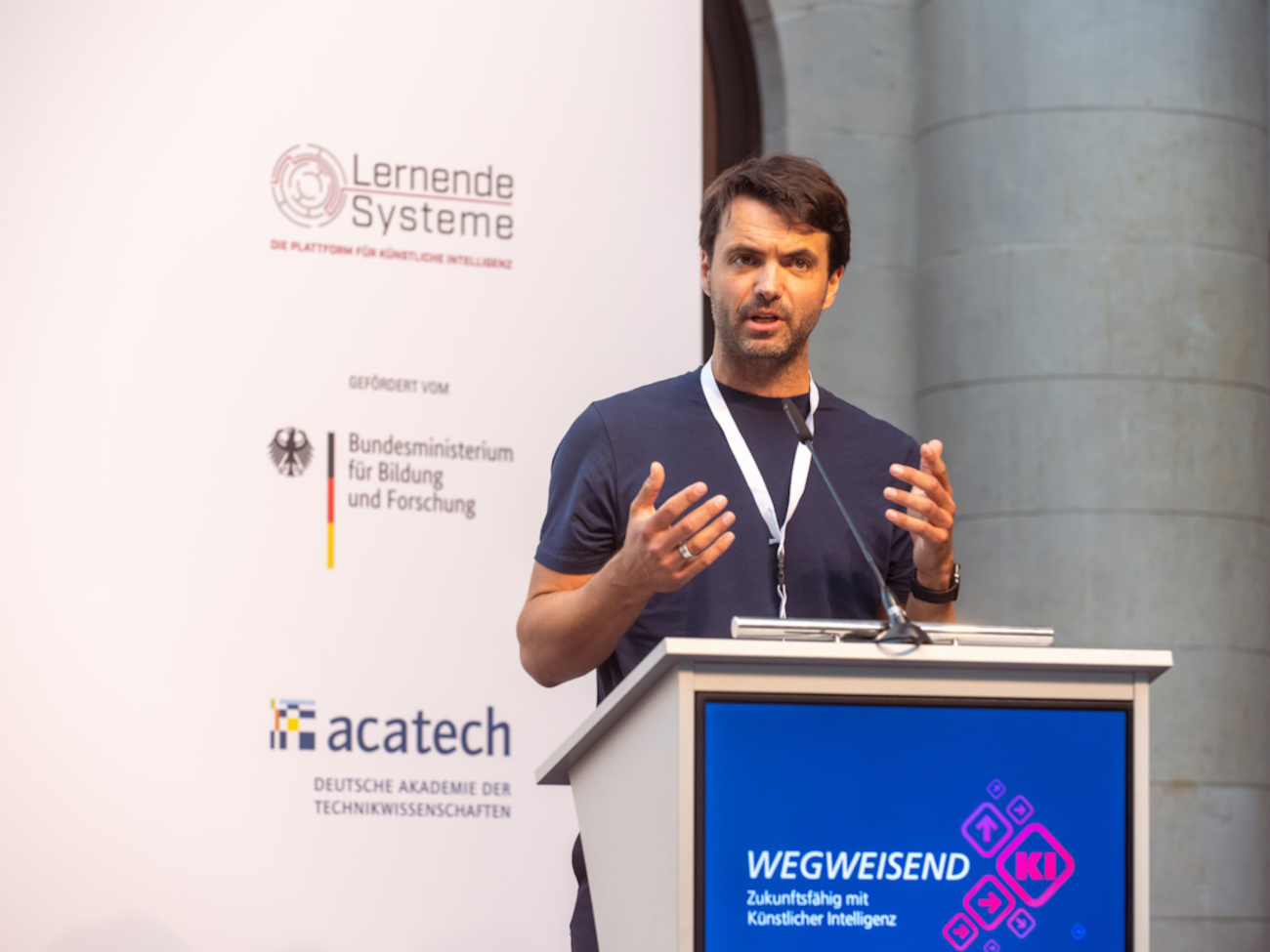
© Matej Meza / Universität Bremen
Who Shapes the Discussion on AI – Business, Media, Society?
A research project at the Centre for Media, Communication and Information Research
Artificial intelligence is an enigmatic term that is associated with many hopes, but also fears. How is artificial intelligence talked about in Germany, the USA, and China? Which people and institutions shape the public discourse? Communication expert Professor Christian Katzenbach from the Centre for Media, Communication and Information Research (ZeMKI) is investigating exactly that.
From driver assistance systems to ChatGPT – artificial intelligence is shaping our everyday lives. But while technical development continues to advance, public discussion about it often remains vague, says communication researcher Professor Christian Katzenbach. At the same time, the ideas that politicians, media representatives, and non-governmental organizations (NGOs) have about artificial intelligence are highly relevant in his opinion. This is due to the fact that they shape how the technology develops and what opportunities are granted to it by society. In the project “Imaginaries of Artificial Intelligence: The Communicative Construction of AI in China, Germany and the US,” he and two other researchers from Bremen and a team from the University of Zurich are therefore investigating the possibilities, potentials, and risks associated with the technology. The researchers are comparing the public discourse from 2012 to 2022 in Germany, the USA, and China.
The team has been working on the topic for three years, with support from the Swiss National Science Foundation and the German Research Foundation. The researchers selected the different countries because of their varying political, economic, and social characteristics. “Despite the fact that all three countries play an important role in the development of AI, they differ greatly in their political and social frameworks,” Katzenbach explains. While China and the USA were engaged in a race for economic dominance, there were repeated attempts in Germany and the EU to give the new technology an ethical and regulatory framework, he adds. Last but not least, the media systems of the three countries differ significantly, ranging from an authoritarian system in China to commercialized media in the USA and the strongly developed public broadcasting system in Germany.

© Matej Meza / Universität Bremen
Links between Public Debate, Technologies, and Politics
In their work, the researchers combine qualitative and quantitative approaches. They interview experts from China, the USA, and Germany, including researchers, politicians, members of think tanks and NGOs, and journalists. In addition, they are investigating the contexts in which the term “artificial intelligence” or its synonyms appear in the media, on Twitter, and on the Chinese microblogging platform Weibo. By doing so, they hope to find out at which times public attention to AI was particularly pronounced and why. For Twitter and Weibo, they are also creating network analyses that illustrate which channels are particularly closely connected. In this way, they have already been able to identify the hundred most influential accounts for the USA and Germany respectively.
The project touches on a fundamental research interest of Christian Katzenbach, who studied not only communication science but also computer science and philosophy. He is very much interested in the interplay between public debate, technologies, and political decisions. “There is often a perception that technologies are the driving factor here and that public debates and politics only react to technological developments,” he explains. In his opinion, this is a grave misunderstanding. He believes that the public’s perception of a technology plays a role in determining the extent to which it is limited by politics and how it develops in practical terms.
Initial Findings: Discussion on Twitter Has Become More Multifaceted
The researchers already have initial results on the AI debate on Twitter. For both the USA and Germany, they were able to show that at the beginning of their study period, starting in 2012, there were still comparatively numerous influential channels run by private individuals. Later, economic actors gained in importance. From around 2019, the debate became more multi-voiced: more and more people from politics or NGOs were having their say. “In the first years of our study period, the debate was strongly influenced by new products and AI developments, such as the prospect of autonomous driving systems,” explains Christian Katzenbach. In his opinion, this explains the initial dominance of economic actors. The questions of the social significance of the new technologies and the extent to which they should be regulated were discussed more intensively at the end of the observation period.

© Christoph Petras
The researchers also found that the debate in Germany was more multifaceted than in the USA, where business representatives dominated the discussion more strongly throughout the entire observation period. Christian Katzenbach sees one reason for this in the fact that many AI companies have their headquarters in the United States. “It stands to reason that they speak out more loudly there than in Germany,” he says.
At present, he and his team are evaluating interviews with experts in addition to data from Twitter and Weibo. Furthermore, Christian Katzenbach is also investigating the international perception of artificial intelligence in another project. How social and political actors regulate internet platforms is another topic he is working on. “I’m continually fascinated by the interface between technology and society, and thus also between computer science, the social sciences, and the liberal arts,” he summarizes.